Beware Donald Trump, the peacemaker in Ukraine and Gaza
Donald Trump’s administration has sent a decisive message that will shake the world. Signs of a peace deal in Ukraine are emerging along with evidence that the President will scale back the US global alliance system and leave Europe to deter Vladimir Putin.
Trump’s determination to end the Ukraine war, upholding his election pledge, is the path-breaking event. His administration has sent the decisive message that will shake the world – the Ukraine peace will come with Trump reshaping ties with Europe and NATO, putting the military and deterrence burden on European nations while Trump seeks a new basis for transactional relations with Russia and Putin.
The direction is not set, but the omens cannot be missed. Ukraine and its President, Volodymyr Zelensky, are the likely losers. There will be huffing and puffing along the way but Trump and Putin will be the winners. The Europeans will be left carrying the major responsibility of deterring Putin in the long run. And Trump seems to be ordaining a revised power structure – the US won’t use its military to guarantee Ukraine’s future and is now qualifying the extent of its commitment to NATO.
This scenario, if realised, might make Trump even more popular in the US: the president who ended two wars, Ukraine and Gaza (if all goes to plan). His core view was captured last week, saying of Ukraine: “They may make a deal, they may not make a deal. They may be Russian some day, or they not be Russian some day.”
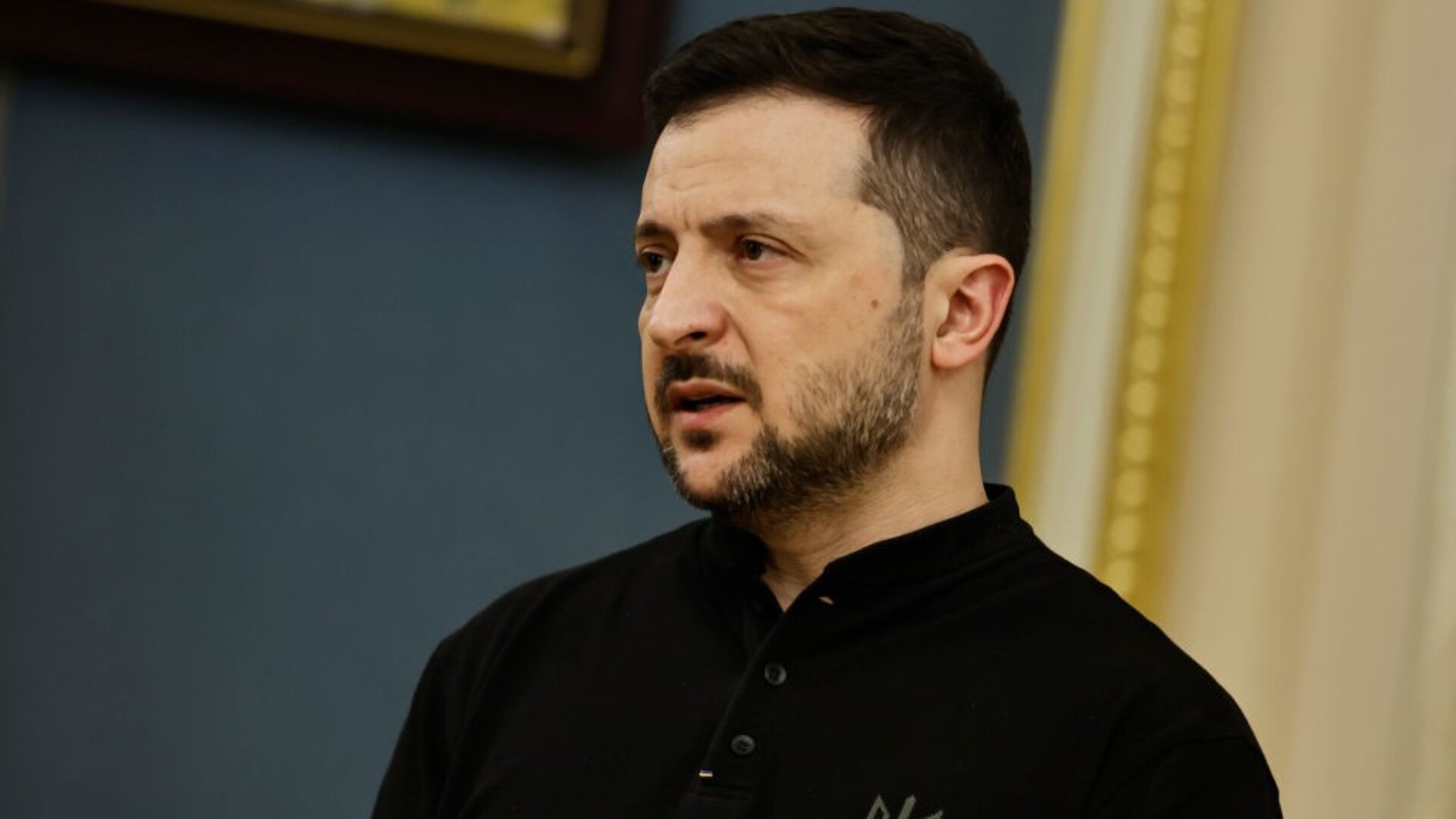
Putin won’t retreat from his mission: to end Ukraine as a nation. Without meaningful security guarantees for Ukraine, Putin will take the territory he now has and seize the rest at the opportune time. The dream of figures such as Tony Abbott that Ukraine’s future be guaranteed by joining NATO has been dismissed. Putin won’t accept it and the Trump administration has rejected it.
Trump, in response to pressure, offered the assurance that Ukraine would be involved in the negotiations. Of course, he would say that. But Trump has said he and Putin will work together to end the war – exactly the negotiation Putin has always wanted. Trump called his 90-minute phone call with Putin “highly productive” and said negotiations would begin immediately.
The extraordinary aspect is that Trump has already conceded the core elements in any negotiation with Russia – no NATO assurance and no Ukraine return to the pre-2014 borders.
The risk is that Zelensky and the Europeans will be sidelined as Trump and Putin cut deals.
US Defence Secretary Pete Hegseth told NATO defence ministers Trump “intends to end this war” and expected Europe to assume more financial and military responsibility for Ukraine with the goal of 5 per cent of GDP spending on defence. He made it clear – no US troops would be deployed to Ukraine. Europe needs to do more. Trump’s right, but 5 per cent is a fantasy.
Critically, Hegseth said Ukraine’s security would mainly become the responsibility of European and non-European forces in a “non-NATO” mission not covered by the collective defence provisions of the North Atlantic Treaty. Decoded, it is unlikely to have teeth. Unless another meaningful arrangement is struck – and it is obviously needed – then Trump is declining to provide a serious US commitment to Ukraine’s independence. It further means that Trump may no longer see America as the prime guarantor of NATO.
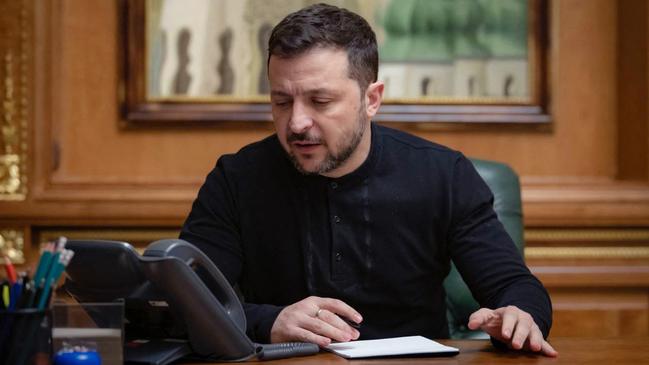
If true, this is a strategic recasting of NATO with consequences beyond Ukraine. Zelensky has previously said security guarantees “without America are not real”. But the Trump administration seems to be saying, even before any negotiations proper, the US will not offer such guarantees.
Hegseth also made clear Trump’s stance has global significance – he said the US was shifting global strategic priorities to defending the American homeland and deterring China in the Indo-Pacific region.
Australian conservatives, no doubt, will welcome such assurances as they have in the past. Consider the astonishing proposition – that Trump, by selling out Ukraine, will intensify strategic deterrence against China. Who would believe this? That many Australian conservatives seem willing to accept it at face value is extraordinary. Their deluded forgiveness of Trump seems almost limitless.
The Wall Street Journal has probed the consequences and put the pivotal question: Is this peace through weakness? It said of Trump: “He’s making concessions to Vladimir Putin without anything in return, and he’s informing Ukraine after the fact. Does Mr Trump want to negotiate peace with honour that will last, or peace through weakness that will reward the Kremlin?”
The Journal went to the critical implications for Australia, saying: “The risk here is that deterrence isn’t divisible. If he abandons Ukraine, he’ll soon find that China is even more emboldened to take Taiwan.” Obviously. Given Trump is set on a deal with Putin, why wouldn’t he chase a deal with Xi Jinping? His global concept seems apparent: he wants to reduce America’s foreign military commitments and adventurism because he think that hurts the American homeland.
That’s his core position.
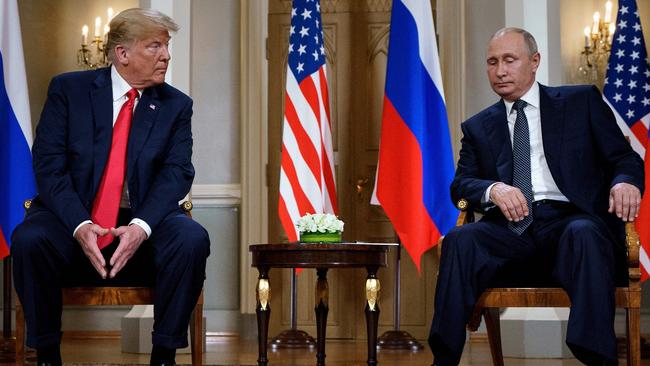
There are two fundamental contradictions in Trump’s agenda: his trade policy and his strategic policy are in conflict and this won’t work in terms of outcomes; and, second, the message being sent is a strategic fallacy – that America will downgrade Europe to become more muscular in the Indo-Pacific.
Former Home Affairs chief Mike Pezzullo tells Inquirer: “The critical strategic decision Trump must take is whether or not he thinks that ‘American greatness’ is the same as America alone. This is the vital consideration for US allies such as Australia.
“Does Trump see the US operating an alliance system or does he think alliances are less important, less valuable and less reliable than did his predecessors? Only the President will be able to answer this because different elements of the US government are inclined to one path over another.
“The question in relation to Australia is whether our role as a close US ally, growing closer – including becoming an integrated part of the US defence industrial base – will be a relevant factor in Trump’s decision on our request for tariff exemptions.”
Precisely. There is only one way an effective regional balance can be struck against China – by Trump championing and nourishing an Indo-Pacific alliance system backed by regional co-operation. If Trump doesn’t believe this, then China wins. That’s the reality.
This has been the view of every recent prime minister – Abbott, Malcolm Turnbull, Scott Morrison, Anthony Albanese – and is the view of Peter Dutton. But, as Pezzullo asks, where is Trump located? He is obsessed about competing with China in economic and hi-tech domains – but far less so in terms of military deterrence. You think Beijing doesn’t see this?
Trump’s coming decision on Albanese’s request for tariff exemptions is about trade but about far more than trade. If Trump denies Australia – when there is no logical basis for such denial – that will have political and strategic consequences in this country. It will harm the alliance partnership and it will offer a commentary on how Trump values alliances.
How do we know this? Well, the Opposition Leader said so when he extended bipartisan support for Albanese in securing the tariff concession. Dutton said he wanted to send a message to the Trump administration: if the tariff on Australia remained “I believe it will damage the relationship between the United States and Australia”.
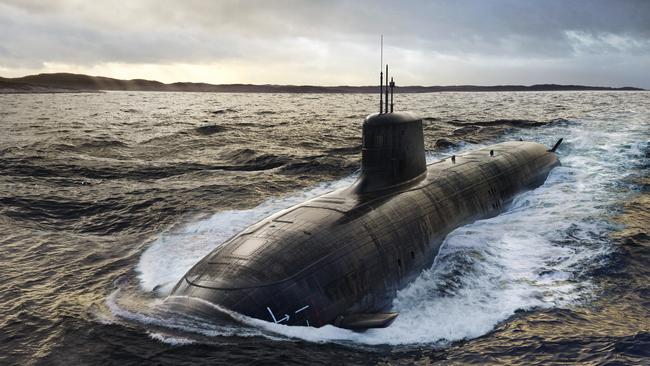
This is a defining statement. Dutton can say this, when Albanese, having to negotiate with Trump, cannot. Dutton’s point is that Australia and America are working on enhanced ties on multiple fronts and imposing tariffs will damage that. Dutton said any Trump retention of the tariffs on Australia would not be “warranted” – that is, the onus would lie with Trump.
Former head of the Defence Department and past ambassador to the US Dennis Richardson tells Inquirer the stakes involved in the tariff decision go to deeper strategic issues and that Trump’s conception of alliances is a historic departure point with consequences for all US allies.
Richardson says: “Trump has a different view on the US global alliance framework than any president since the second world war. If his concern stopped at the issue of allies paying more of their way that would be understandable. That has been a frustration of successive administrations for many years and Trump has simply articulated that in cruder and bolder terms.
“But I think Trump’s view of alliances goes beyond partners just doing more. He has a deep-seated view that the US global engagement has been at the cost of the US heartland. He believes it has cost American jobs and lives, and he believes this should come to an end. I think he has a view that no other country can threaten the United States per se, therefore if a few allies want to part ways with the US because of this approach, then so be it. The US can survive. I think he’s that transactional and different.
“If the President does impose tariffs on Australian aluminium and steel, I believe that will undermine broader support in Australia for the alliance. One can argue whether that should or shouldn’t be the case. In reality, however, it would undermine support. That’s because Australia is a very strong ally, we have stood with the US more than any of its allies in the last 100 years, we buy virtually all of our military hardware from the US, we have a substantial trade deficit with the US and we now have the AUKUS partnership.

“Against that backdrop, if the President is prepared to put narrow sectional interests ahead of these factors, then it will have an inevitable negative impact on broader support for the alliance.
“It will be taken advantage of by those in Australia who have opposed the alliance for a long time. Others, who oppose AUKUS, will say ‘look this guy’s not a friend’. And people who don’t take much of an interest will scratch their heads and wonder where the US is at. It will lead to a question mark in a lot of people’s minds about the US reliability under President Trump.”
The central proposition here is that “Making America Great Again” conflicts with the US alliance-led global leadership role since World War II – the role so vital for Australia – and that Trump is inclined to a defence strategy more anchored around the US homeland. The consistency in his initiatives, whether Gaza or Ukraine, is “no US troops”. Pursuing an ongoing and ambitious maritime strategy and investment in ships is completely consistent with this view.
In his inauguration speech, Trump said: “We will again build the strongest military the world has ever seen. We will measure our success not only by the battles we win but also by the wars that we end and, perhaps most importantly, the wars we never get into.” This is a declaration for a much more circumspect attitude towards foreign troop deployment and military engagement.
It suggests Trump wants to present himself to the American people as a strong man, an opponent of foreign military adventures and as a peacemaker – a trinity likely to send his ratings soaring as president.
Much of his method seems to revolve around audacious US visions from Gaza to Ukraine, fused with extreme wariness on direct US troop commitment. It is ambition without cost, a mix that rarely works in history. The upshot is that the contradictions between Trump’s trade and strategic outlooks cannot be missed.

His conviction that other nations – friends or enemies – have been ripping off the US and must be punished means he is driven to raise tariffs, threaten global trade wars and harm strategic allies. He began by punishing friends, Canada and Mexico, as well as China, while warning that Europe would be next.
What has Trump got against Canada? He threatens Canada with tariffs while suggesting it should become the 51st state. He makes unrealistic demands on European defence spending – witness the 5 per cent proposal – while signalling he will punish Europe with tariffs. There is no consistency of purpose.
Trump finished the week with a radical announcement to impose on nations a “reciprocal tariff” that would lead to higher duties on dozens of nations, finalise the destruction of World Trade Organisation principles and launch a series of bilateral deals and negotiations with many nations anxious to minimise the damage.
Entrenched US protectionist and professional critic of Australia Peter Navarro said: “America runs its more than $1 trillion trade deficit because the major exporting nations of the world attack our markets with punishing tariffs and even more punishing non-tariff barriers.”
Maybe it won’t be as bad as it looks. Certainly, the tariffs haven’t been imposed immediately. And this probably substitutes for his earlier pledge on across-the-board tariffs. As usual, Trump was ebullient, saying his decision is going “to make our country a fortune”.
Fundamental to Trump’s approach is that allies as well as enemies will be punished. Nations most likely to be affected include the EU, India and Japan.
Taking Trump at face value, Pezzullo says: “Trade and strategy need to be working together and not in tension with each other. Trump’s real challenger to Make America Great Again is China. It is China that is dominating global manufacturing through predatory practices and aggressive industry policies. Trump’s trade policies, therefore, should focus on the prime target and that is China.”
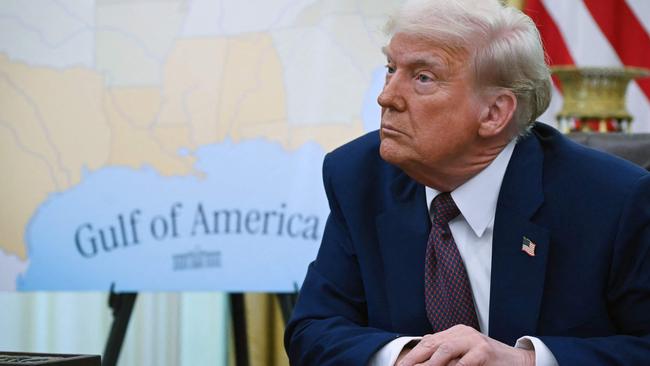
Richardson says: “Trump is bringing trade and strategic issues together in a way no previous administration has done. I think there is a contradiction in his policies. Over the decades it has not been unusual for the US to have strong trade and economic tensions with allies, for instance with Japan in the 1980s and also with European partners.
“But these issues – trade and security – were largely managed separately. Trump appears ready to merge them in a way in which we have not experienced in the past 80 years.
“In terms of the Indo-Pacific, Trump will see the value of partnerships vis-a-vis China. However, those partnerships are going to come under pressure if he also seeks a totally transactional and ‘dog-eat-dog’ approach to trade and commerce.”
The Trump tragedy is that his trade and tariff policies cannot make America great again. They will assist some industries and jobs – protection always does. But they will be more important in lifting US domestic prices, fanning inflation, undermining US competitiveness, damaging global trade, alienating a wide range of nations, weakening the US alliance system but offering China a vast array of soft power and hard power opportunities around the world.
In Australia, the Albanese government and the Coalition opposition face immense challenges to sort through the complexity of dealing with Trump’s world. So far we see a dumbed-down politics and infantile political scoring about why Albanese hasn’t visited the US to see Trump and why Kevin Rudd is still ambassador. Labor, at least, has a strategy that may or may not work. The Opposition, Dutton’s remarks this week aside, is a shambles, unable to decide whether its task is to support the national interest or work to undermine the government.
Trump is changing the world and the role of US power. He is abandoning the American model of global leadership since World War II. His reindustrialisation of America is to be achieved by high tariffs that will undermine the world trading system. It is fatuous to think his economic protectionism will exist without a degree of strategic withdrawal. His hostility towards global institutions shows he thinks US influence in such institutions doesn’t matter. He is attached to old-fashioned sphere-of-influence territorial politics – a feature he shares with Putin and Xi, with whom he aspires to cut major deals.
Interestingly, long before Trump won the election, Paul Keating, a student of leaders and power, concluded that Trump was essentially a peace candidate who wouldn’t fight for Ukraine or Taiwan and would reconcile America to its reduced leadership role in the world by striking long-run bargains with Russia and China.


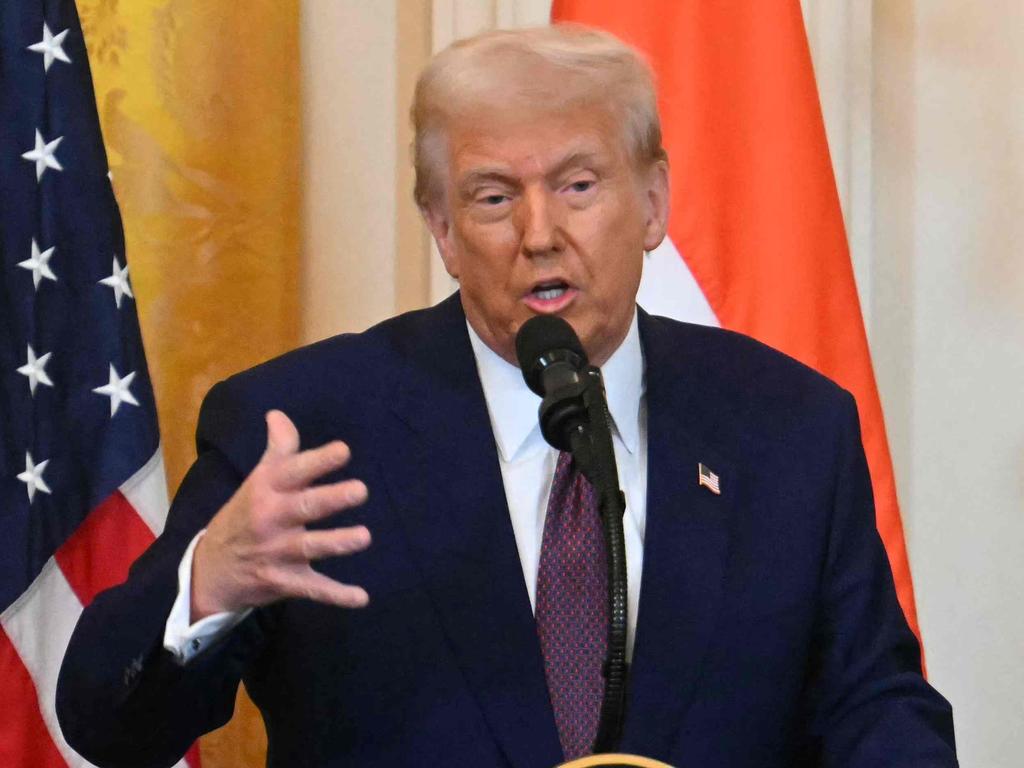
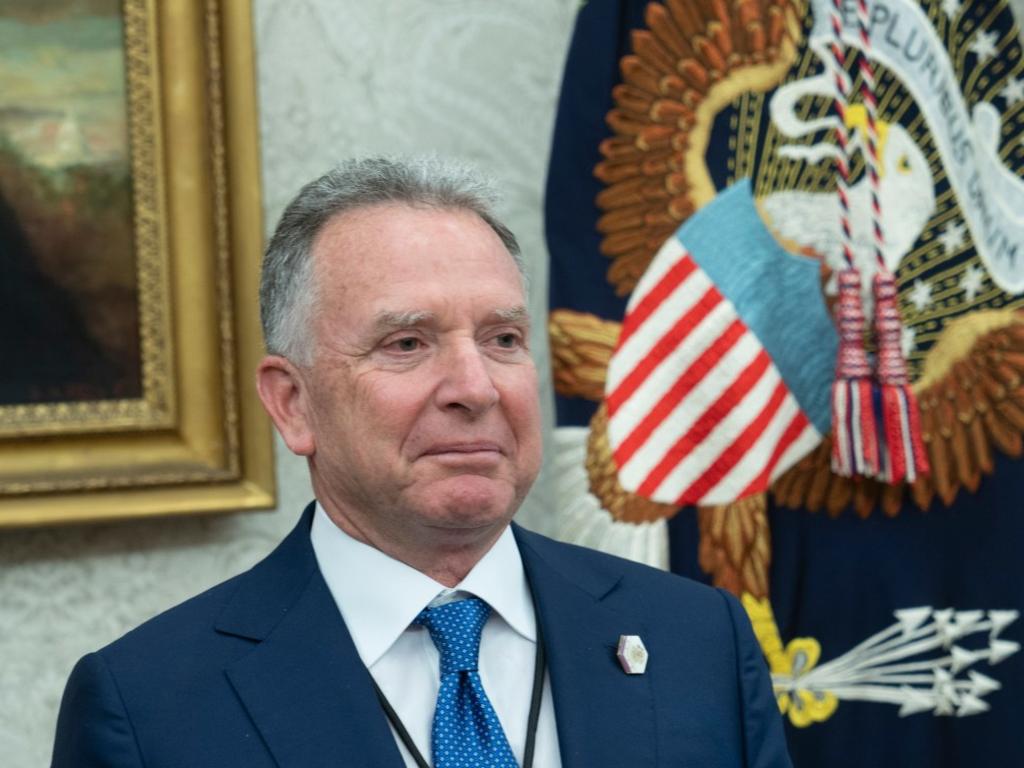

Donald Trump is transforming the world as a peacemaker. Signs of a long-predicted deal between Trump and Vladimir Putin are emerging along with evidence that Trump will scale back the US global alliance system – the crisis over Australian trade being a small but revealing clog in the bigger picture.